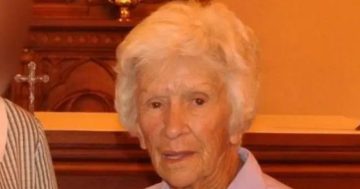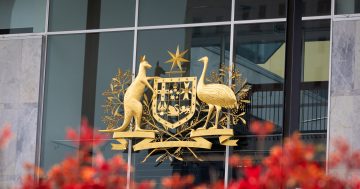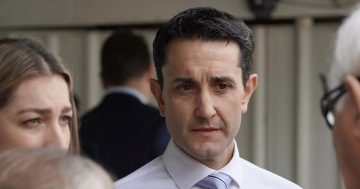Reviewed by Robert Goodman.
By Louse Erdrich, Hachette, $32.99.
 Two years on and the pandemic is starting to colonise literature. Louise Erdrich’s latest book The Sentence feels like it started as one thing and was then overtaken by events, in particular the events of 2020. But despite that, Erdrich manages to bring all her narrative threads into a coherent whole. And she does this by focussing on character, in particular her narrator, Tookie, but also all the people around her.
Two years on and the pandemic is starting to colonise literature. Louise Erdrich’s latest book The Sentence feels like it started as one thing and was then overtaken by events, in particular the events of 2020. But despite that, Erdrich manages to bring all her narrative threads into a coherent whole. And she does this by focussing on character, in particular her narrator, Tookie, but also all the people around her.
The Sentence opens somewhat frenetically, with the story of Tookie’s incarceration after being involved, somewhat unwittingly, in a drug-smuggling operation. On emerging from prison in 2019 Tookie not only marries Pollux, the police officer who arrested her, but goes to work in a local Minneapolis bookshop run by ‘Louise’ (here it might be fair to reveal that besides being a writer Louise Erdrich also runs a small bookshop in Minneapolis). Not long after she starts working there, Tookie discovers that the bookshop is haunted by Flora, the spirit of a long-time customer, and the overarching thread of the novel is Tookie’s attempts to deal with this haunting. But events soon overtake her – first the pandemic in the early months of 2020, and then the protests that sweep the United States following the death of George Floyd. Minneapolis, where Floyd’s death occurred, was their epicentre.
There is plenty to love about The Sentence. First and foremost, a deep and abiding love of small bookstores and the people who work there. Here are a couple of examples:
Small bookstores have the romance of doomed intimate spaces about to be erased by unfettered capitalism. A lot of people fall in love in here. We’ve even had a few proposals …
Nothing makes Penstemon happier than handing a favourite book to someone who wants to read it. I’m the same. I suppose you could say this delights us although ‘delight’ is a word I rarely use. Delight seems insubstantial; happiness feels more grounded; ecstasy is what I shoot for; satisfaction is hardest to attain.
The novel is full of great recommendations, which readers don’t have to keep track of as there is a seven-page ‘Totally Biased List of Tookie’s Favourite Books’ at the end.
The bookshop provides a potent background to all of the other issues that Erdrich is seeking to explore. Erdrich is from the Ojibwe people, also known as the Chippewah, as is Tookie, and many of the characters who surround them are Indigenous Americans. The history of colonisation and the current circumstances of indigenous Americans really form the core of this novel, and are deeply connected to the haunting that Tookie is trying to resolve.
Like every state in our country Minnesota began with blood, dispossession and enslavement. Officers in the U.S. Army bought and sold enslaved people … Our history marks us. Sometimes I think our state’s beginning years haunt everything: the city’s attempt to graft progressive ideas into its racist origins, the fact that we can’t undo history but are forced to either confront or repeat it. The thing is, our customers have given me faith that we can do it.
And later, this on Indigenous identity:
Pen took a breath … and went on talking …
‘The thing is most of us Indigenous people do have to consciously pull together out identities. We’ve endured centuries of being erased and sentenced to live in a replacement culture. So even someone raised strictly in their own tradition gets pulled towards white perspectives.’
‘For sure,’ said Asema, ‘white realities are powerful. And most of us have to pick and choose between our family and tribal traditions to find ourselves. [Flora] knew we struggled, she knew we were sometimes tentative, she knew we sought our own sense of belonging. She knew that some of us have to make a choice every day to hold on, to speak our language, to dance, to pay our dues to the spirits.’
And it is this perspective that makes the sections relating to the George Floyd demonstrations more powerful, as the characters consider not only the way Black Americans are treated by the police, but the similar ways in which Indigenous Americans have been treated. This is drawn even more starkly in the response of Tookie’s husband Pollux, who is both Indigenous and a member of the police force.
Hetta was bursting mad … ‘I’m sure you would have stopped Derek Chauvin. Three other cops were there. One even Black. But I’m sure you would have stopped Derek Chauvin.’
Pollux scrubbed his face with his palms. Rubbed his eyes with the heels of his hands. Shook his head like he was coming out of a dream. His voice was too gentle.
‘I hope I would have. But you never know what you’re gonna do until you’re in that situation. Until the world is a better place, we need cops, daughter.’
The final thread of this novel is the looming spectre of Covid. The narrative charts that first year of the outbreak in the United States, starting with the panic buying:
Of course, the things that other people were into hoarding were gone. Bleach, beans. For some reason nobody was hoarding taco shells, so I bought five boxes … Back in the canned goods aisle, someone had restocked a patch of beef stew and there was a single can of SpaghettiOs. I reached a hand toward the SpaghettiOs. Another hand slipped beneath my hand, tore the can away. It was a woman wearing a floral scarf tied over her mouth … She was an ace hoarder, but I was not going to take up the challenge.
Erdrich does not turn away as, over the next few months, the situation gets more serious – the bookshop has to close and the staff can only go in one at a time to process orders. One character ends up in intensive care.
All of which makes The Sentence sound self-serious and gloomy, but while it deals with some unpleasant recent events, it is anything but. Tookie is a resilient, self-aware character who loves life and loves books and whose narrative is barbed but layered with humour and hope. And while it feels like those real-life events overtook what may originally have been planned to be a slightly different narrative, well, that is life too. Erdrich chose not to ignore the real world but to explore how her characters respond to it, and in doing so she brings all of us who have experienced or witnessed the same events deeper into her story.
This review first appeared in Newtown Review of Books.
Over 700 more book reviews can be found on Pile by the Bed.











